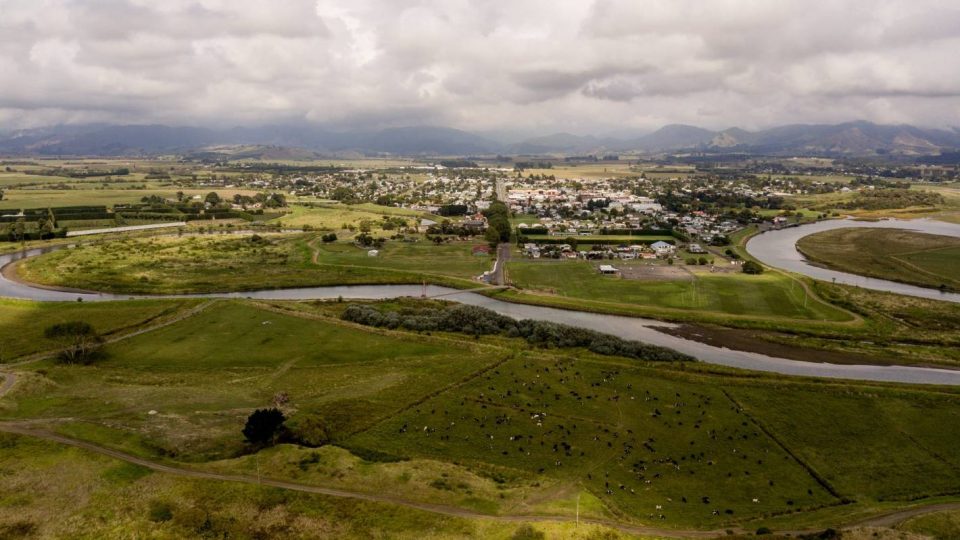Tom Lee/Stuff
A new mussell processing plant in Ōpōtiki will create 230 new jobs.
The expansion of an Ōpōtiki mussel farm, along with a new processing factory will create 230 jobs in the Eastern Bay of Plenty town.
A newly formed impact investment fund, Purpose Capital, along with Eastern Bay Energy Trust and Bay Trust have collectively pumped $5.5 million into Whakatōhea Mussels.
Purpose Capital and Bay Trust have each put in $2m, and Eastern Bay contributed $1.5m to the $37m project.
The Government’s Provincial Growth Fund had already contributed $19m.
READ MORE:
* The Detail: Mussel farms, a small industry with big ambitions
* Costs ‘will not keep increasing’ for $30m Hundertwasser Art Centre in Whangārei
* Five ideas that could have changed the Wellington region – and the idea that still might
Purpose Capital was formed specifically to fund projects that address systemic social and environmental issues, and this was its inaugural investment.
Director Bill Murphy said If it was just a commercial investment fund, the jobs would most likely be filled from elsewhere because there was high unemployment and even multi-generational unemployment in the area.
supplied
Purpose Capital’s executive director Bill Murphy says it will ensure the community gets long-lasting benefits from the project.
Whakatōhea Mussels needed investors willing to support people a into employment, he said.
The fund has attracted a number of high profile investors, including the Tindall Foundation, K1W1, WEL Energy Trust, as well as private and family trust investors.
The mussel farm was 8 kilometres off the coast of Ōpōtiki and covered 3800 hectares. Its 176 lines – a series of ropes hanging from ‘backbone’ ropes held up by buoys – would be expanded to more than 300.
The new factory would process whole live mussels for the New Zealand market and half-shell frozen mussels for export. In time it would move into higher value nutraceutical processing.
supplied
Whakatōhea Mussels now has enough funding to expand their blue water mussel farm and build a mussel processing factory in Ōpōtiki to employ hundreds of locals.
Site works were underway and the factory could be up and running by early next year.
Murphy said it had worked closely with Whakatōhea Mussels and the Whakatōhea Maori Trust Board to include terms that would ensure the local community receive long-lasting benefits from the project.
“It’s simplistic to just say ‘we’ll build this factory and employ a whole bunch of people’. Many of those who will work in the factory will be women and solo mums. They will face childcare issues, for example, which Whakatōhea Mussels will address.”
supplied
Whakatōhea Mussels 176 lines, the vertical track the mussels grow along, will be expanded to more than 300.
Part of investment agreement was that Whakatōhea Mussels would budget for training and bridging programmes, ongoing education, scholarships, transportation support and childcare subsidies, along with a commitment to minimise the impact of operations on marine life, Murphy said.
The regional trusts that partnered with Purpose Capital might also provide grants to help support these goals.
It was hoped the investment would turn the Eastern Bay of Plenty into one of the largest aquaculture regions in the country.
Last year Fisheries Minister Stuart Nash told an industry conference the Government was doing research into offshore farming, as opposed to inshore aquaculture, because “this is where the real potential lies.”
Whakatōhea Mussels chairman Ian Craig said he was “pleased and relieved” to see funding for the mussel processing factory over the finish line.
“To see this project finally coming to life is a dream come true for Whakatōhea iwi and Ōpōtiki town. It’s no exaggeration to say we’ve been working to make this happen for decades.”
Whakatōhea Māori Trust Board chief executive Dickie Farrar said iwi elders had first conceived of the project in 1996.
“Now we have the opportunity to invest in our people and our community to build a better future for all.”


